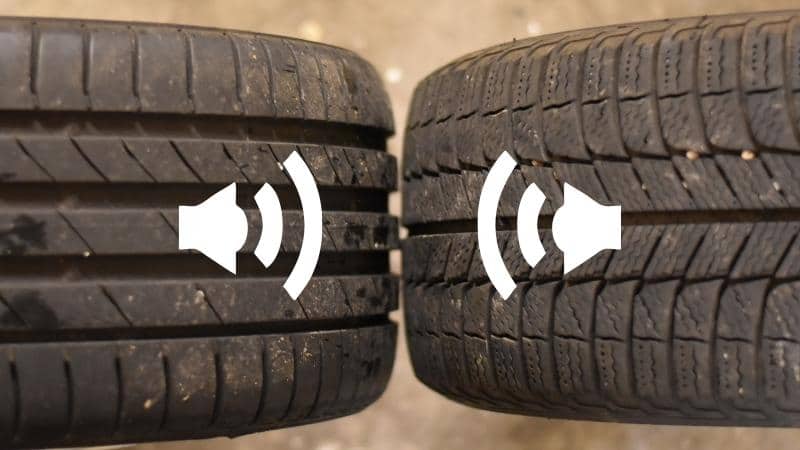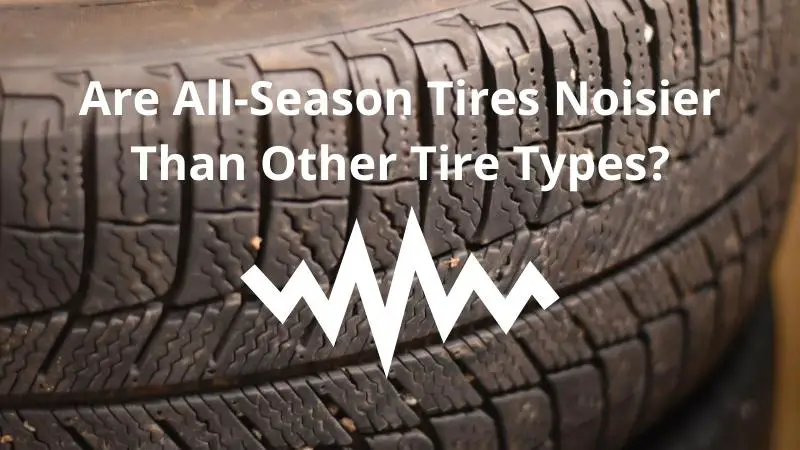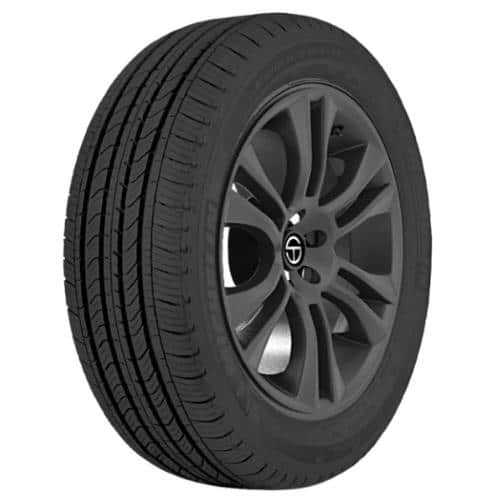Perhaps you’re looking for new tires and are considering all-season? But, the last thing you want is a loud and noisy tire. So, you wonder, are all-season tires noisier than other tire types?
All-season tires tend to be noisier than summer or performance tires. On the other hand, both winter tires and all-weather tires tend to be noisier than all-season tires. Generally speaking, the more sipes and tread “slits” a tire has the noisier it will be.
So, if you need a quiet and comfortable ride, then consider summer tires if your climate allows for it.
Read on to learn more about the noise level of all-season tires and how they compare to other tire types.
Are All-Season Tires Noisier Than Summer Tires?
Consider purchasing some good summer tires if you want a calmer and quieter ride. They have fewer sipes and tread slits than all-season tires, so they won’t produce as much noise when driving on regular roads or highways.
The tread pattern designs, rubber compounds utilized, sidewall widths, and heights are the differences between the two. Summer tires, for example, will often have a lower profile, resulting in improved traction on hot asphalt over shorter distances and less wheel spin. However, all-season tires can handle most circumstances quite well, so the choice is yours.
Because sound waves created while driving doesn’t bounce off the top of your sidewall and ricochet back at you (contained) but instead remain in place for a short while before dissipating slowly into the air, a tire with few treads and softer rubber compounds will be considerably quieter.

Are All-Season Tires Noisier Than Winter Tires?
This is an interesting question. Snow or winter tires are substantially louder than summer or all-season tires. There are several reasons behind this.
When it comes to most manufactured parts for your car, several sacrifices are made at each stage of the manufacturing process to ensure that the part achieves its intended purpose.
Manufacturers construct tires based on ride comfort, grip, handling, noise, longevity, puncture resistance, and several other variables. When constructing a winter tire, the need for a strong grip on the road at low temperatures takes priority over almost everything else.
So, noise level will be increased with winter tires because they must have more sipes and different tread compounds to provide optimal grip on winter roads. Furthermore, studded winter tires are the noisiest ones out there. Especially if you drive on hard surfaces since the metal studs will scratch against the ground.
Are All-Season Tires Noisier Than All-Weather Tires?
All-weather tires and all-season tires are not the same thing. All-weather tires are preferred to all-season tires if you drive in winter weather or slightly below freezing temperatures.
These tires are a little noisier than premium all-seasons, and the ride may be harsher because they have a higher speed rating than what the general all-season tires have.
Why Are Some Tires Louder Than Others?
As discussed above, it all comes down to how the tires are made. Tire type, tire size, tire tread, and rubber type are the four key elements that affect the noise level of tires.
A faulty component, such as a broken belt or uneven tire wear, could cause additional tire noise as well.
You can learn more about why some tires are louder than others in this post.
Best Quiet All-Season Tires
Our Top Pick: Michelin Primacy MXV4
The Michelin Primacy is an all-season tire designed to reduce road noise, vibration, and fuel consumption.
Rigid tread construction helps in increasing tread contact with the pavement. Twin steel belts improve ride comfort, durability, and speed stability.
The computer-designed tread pattern contributes to a quieter ride by reducing tread noise.
Pros
- Quiet, soft ride
- Excellent traction on dry roads
- Excellent stopping on wet and dry pavement
Cons
- Not good during winter
- Tread durability is an issue
Hi, my name is Niklas, the head content creator & CEO of Whirling Wheelz. I am very interested in vehicles of all kinds, mainly cars. I have a car mechanics degree from high school and a big hobby of mine is to follow the WRC (World Rally Championship) both online and through travel.



